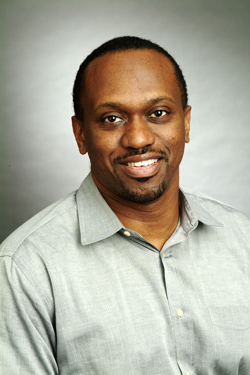
Collin Stultz, an HST faculty member, will participate in the program, which offers undergraduates the opportunity to spend time with some of the nation's most distinguished scholars.
HST/IMES
Collin Stultz, professor of biomedical engineering in the MIT Electrical Engineering and Computer Science (EECS) department, and an HST faculty member, has been named to the Phi Beta Kappa Visiting Scholar Program. Stultz, a practicing cardiologist at the Massachusetts General Hospital (MGH), is also a core faculty member for the MIT Institute for Medical Engineering and Science (IMES), as well as a member of the Research Laboratory of Electronics (RLE), and is an associate member of the Computer Science and Artificial Intelligence Laboratory (CSAIL). IMES is HST’s home at MIT.
Since 1956, the Phi Beta Kappa Society’s Visiting Scholar Program has offered undergraduates the opportunity to spend time with some of America’s most distinguished scholars. The purpose of the program is to contribute to the intellectual life of the institution by making possible an exchange of ideas between the Visiting Scholars and the resident faculty and students.
Stultz, says that while he hopes to be able to do in-person campus visits as part of the program, it will depend on which travel restrictions are in place, due to the pandemic, throughout the coming year. Nonetheless, he says, “I am looking forward to interacting with talented students and scholars at different universities where Phi Beta Kappa chapters are located.”
Each year, members of the Committee on the Visiting Scholar Program select top scholars in the liberal arts and sciences to visit, either in person or virtually, universities and colleges where Phi Beta Kappa chapters are located. Visiting Scholars spend two days on each campus meeting informally with undergraduates, participating in classroom lectures and seminars, and giving one major lecture open to the academic community and general public.
The 2021-2022 Visiting Scholars will make over 100 visits during the academic year, with the majority of them participating in our podcast Key Conversations with Phi Beta Kappa.